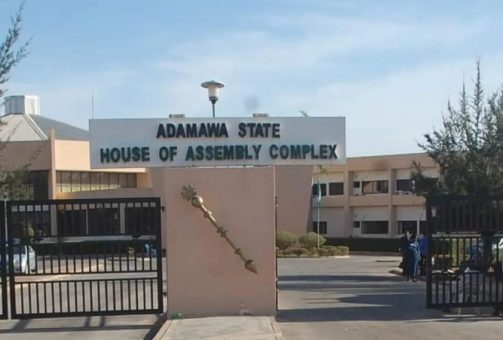
The Senate is set to approve President Bola Tinubu’s request for a $2.2 billion (approximately N1.77 trillion) loan today, Wednesday. This loan is part of the external borrowing plan outlined to finance the N28.7 trillion 2024 budget. The President submitted the loan request in a letter read at both the Senate and the House of Representatives during Tuesday’s plenary sessions. Tinubu explained that the loan would help cover a portion of the N9.7 trillion budget deficit for the 2024 fiscal year.
Following the submission, Senate President Godswill Akpabio tasked the Senate Committee on Local and Foreign Debts with reviewing the request and presenting a report within 24 hours. Akpabio emphasized that the loan request is already part of the approved external borrowing plan for the 2024 fiscal year and should be expedited.
In addition, Tinubu submitted the Medium-Term Expenditure Framework (MTEF) and Fiscal Strategy Paper (FSP) for 2025–2027 to both chambers of the National Assembly. The Senate Committee on Finance, National Planning, and Economic Affairs has been directed to examine the MTEF/FSP documents and report back within a week. Key assumptions in the MTEF/FSP include a $75 oil price benchmark per barrel, a daily oil production target of 2.06 million barrels, an exchange rate of N1,400 to $1, and a GDP growth target of 6.4%. These parameters are crucial for drafting the proposed N47.9 trillion 2025 budget.
Additionally, President Tinubu forwarded the Social Investment Programme Amendment Bill to the National Assembly. The proposed amendment aims to enhance the framework for implementing social welfare programs, focusing on increased transparency and efficiency. Tinubu highlighted that the amendment would designate the National Investment Register as the primary tool for identifying beneficiaries, ensuring that social investment initiatives are data-driven and effectively reach vulnerable Nigerians.
Tinubu stressed the urgency of passing the amendment, as it is crucial for improving the management and delivery of social welfare programs, ultimately addressing poverty and inequality in Nigeria. The bill has been referred to the relevant Senate committees for review, with deliberations expected in future sessions. This move reflects the Tinubu administration’s commitment to using technology and data to optimize the impact of social welfare programs across the country.






